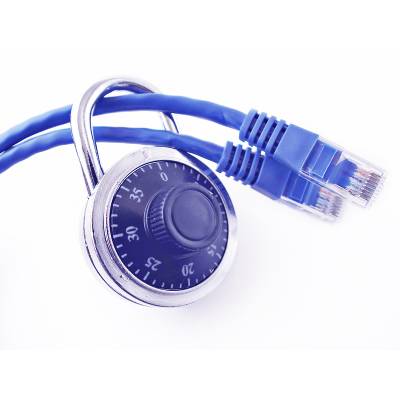 In today's connected home, Internet security needs to extend beyond the PC. Any device that's connected to the Internet needs to be password protected, secured with a firewall, and utilize available security apps. These precautions should be taken even with seemingly harmless devices like baby monitors. A family from Ohio recently learned this lesson the hard way.
In today's connected home, Internet security needs to extend beyond the PC. Any device that's connected to the Internet needs to be password protected, secured with a firewall, and utilize available security apps. These precautions should be taken even with seemingly harmless devices like baby monitors. A family from Ohio recently learned this lesson the hard way.
Directive Blogs
The Internet of Things is all around us, in our homes, our offices, and even our cars. While this connectivity can provide a more unified and automated approach to daily tasks, it has the downside of enabling certain security threats to go unfettered. A prime example are the IoT-driven botnets that seem to be increasing in popularity.
The Internet of Things has been growing rapidly, and with this growth it has become a major part of daily life. There are connected devices you couldn’t even fathom being needed, but some have turned out to be exceeding useful. In 1977, the release of Star Wars saw people’s imaginations expand. The science end of the sci-fi went into overdrive, and soon communications and computing would change forever. Despite being a long time ago in a galaxy far, far away, the Star Wars universe introduced several concepts of the Internet of Things, decades before the IoT was even conceptualized. This week, we will take a look at the modern day Internet of Things, and how Star Wars primed us for our own future.
Do you know how the countless devices entering the workplace will affect your business’s infrastructure and security? It’s important to remain future-minded about how the Internet of Things and connected devices will influence your business in the near future. According to HAX Hardware Trends, 2018 will see a multitude of changes in how we approach the Internet of Things, as well as how businesses manage it for their networks.
People spend a lot of money on the Internet. From an individual standpoint, the amount the average person spends on Internet-based services is their largest expense outside of the money they spend on their residence, and perhaps their transportation costs. In order to understand the landscape of what is effectively a battle for Internet supremacy, you first have to take a look at the battlefield itself.
 There’s a reason why IT professionals think that the Internet of things is a major security discrepancy. Around 5.5 million new devices are being connected to the Internet every day, and are giving security experts a run for their money. The Internet of Things and its devices could potentially become a security hazard for businesses that aren’t prepared to protect their assets from hacks.
There’s a reason why IT professionals think that the Internet of things is a major security discrepancy. Around 5.5 million new devices are being connected to the Internet every day, and are giving security experts a run for their money. The Internet of Things and its devices could potentially become a security hazard for businesses that aren’t prepared to protect their assets from hacks.
 With the Internet of Things continuing to gain popularity, we’re seeing more devices that connect to the Internet than ever before. However, what the users of these devices might be failing to take into consideration is the fact that the Internet is a dangerous place full of threats and other miscreants. What happens if these criminals decide to attack any of your connected devices? This is a relevant question to ask since October is Cyber Security Month, and The Internet of Things represents the next frontier of cyberspace.
With the Internet of Things continuing to gain popularity, we’re seeing more devices that connect to the Internet than ever before. However, what the users of these devices might be failing to take into consideration is the fact that the Internet is a dangerous place full of threats and other miscreants. What happens if these criminals decide to attack any of your connected devices? This is a relevant question to ask since October is Cyber Security Month, and The Internet of Things represents the next frontier of cyberspace.
 The incorporation of mobile devices into day-to-day life has changed the culture significantly. In fact, when Apple introduced “iPhone” less than a decade ago, Steve Jobs famously said, “It’s like your life in your pocket.” Now, over eight years on from the launch of the first iPhone, it’s hard to remember what life was like before you had a full-function information system in the palm of your hand. We’ve come to rely heavily on these devices, driving mobile profits up and creating a market that didn’t have any substance only a short time ago.
The incorporation of mobile devices into day-to-day life has changed the culture significantly. In fact, when Apple introduced “iPhone” less than a decade ago, Steve Jobs famously said, “It’s like your life in your pocket.” Now, over eight years on from the launch of the first iPhone, it’s hard to remember what life was like before you had a full-function information system in the palm of your hand. We’ve come to rely heavily on these devices, driving mobile profits up and creating a market that didn’t have any substance only a short time ago.
 When you think of the Internet of Things, does your mind immediately wander into the realm of connected devices that change the way we interact with each other? Or, does it consider the security issues that can potentially become a threat to your entire network and technology infrastructure? Hopefully it’s a little of both, with an emphasis placed on security.
When you think of the Internet of Things, does your mind immediately wander into the realm of connected devices that change the way we interact with each other? Or, does it consider the security issues that can potentially become a threat to your entire network and technology infrastructure? Hopefully it’s a little of both, with an emphasis placed on security.
 The Internet of Things is changing the face of web-connected devices as we know it. Some would argue that the world isn’t ready for the IoT, but it’s on its way nonetheless. But what really constitutes the Internet of Things? InfoWorld suggests that a lot of what the public sees as the Internet of Things shouldn’t be classified as IoT devices. Therefore, we need a more substantial definition for this revolutionary phenomenon.
The Internet of Things is changing the face of web-connected devices as we know it. Some would argue that the world isn’t ready for the IoT, but it’s on its way nonetheless. But what really constitutes the Internet of Things? InfoWorld suggests that a lot of what the public sees as the Internet of Things shouldn’t be classified as IoT devices. Therefore, we need a more substantial definition for this revolutionary phenomenon.
 With the Internet of Things connecting more devices to the Internet, these devices can potentially be turned to nefarious use. Despite all of the benefits of the Internet of Things, like big data analytics, anything connected to the Internet is threatened by cyber crime to at least some degree. In fact, some professionals believe that the Internet of Things will usher in an era of new types of cyber crime; murder included.
With the Internet of Things connecting more devices to the Internet, these devices can potentially be turned to nefarious use. Despite all of the benefits of the Internet of Things, like big data analytics, anything connected to the Internet is threatened by cyber crime to at least some degree. In fact, some professionals believe that the Internet of Things will usher in an era of new types of cyber crime; murder included.
 Technological and smart device leviathan, Samsung, has announced its plan to turn homes into smart hubs with its Android mobile devices controlling the action. Samsung is already at the forefront of the smartphone and smart TV market, but it also manufactures other products such as refrigerators, washing machines, and air conditioners. Now it has created a way for all of them to speak to one another.
Technological and smart device leviathan, Samsung, has announced its plan to turn homes into smart hubs with its Android mobile devices controlling the action. Samsung is already at the forefront of the smartphone and smart TV market, but it also manufactures other products such as refrigerators, washing machines, and air conditioners. Now it has created a way for all of them to speak to one another.
 Are you looking to make 2014 a breakout year for your business? Of course you are. One way to make this happen is to take advantage of the year's biggest business technology trends. This week we are featuring three trends in particular that will give your organization the competitive edge. For our second trend, we're reporting on the advantages of "The Internet of Things."
Are you looking to make 2014 a breakout year for your business? Of course you are. One way to make this happen is to take advantage of the year's biggest business technology trends. This week we are featuring three trends in particular that will give your organization the competitive edge. For our second trend, we're reporting on the advantages of "The Internet of Things."
 The Internet of Things (IoT) is changing the way that businesses approach technology solutions, but its biggest impact might be in the consumer environment. With so many new devices connecting to the Internet and communicating with each other, it can be difficult to slap a label on the Internet of Things and associate it with the countless devices being created every day.
The Internet of Things (IoT) is changing the way that businesses approach technology solutions, but its biggest impact might be in the consumer environment. With so many new devices connecting to the Internet and communicating with each other, it can be difficult to slap a label on the Internet of Things and associate it with the countless devices being created every day.


